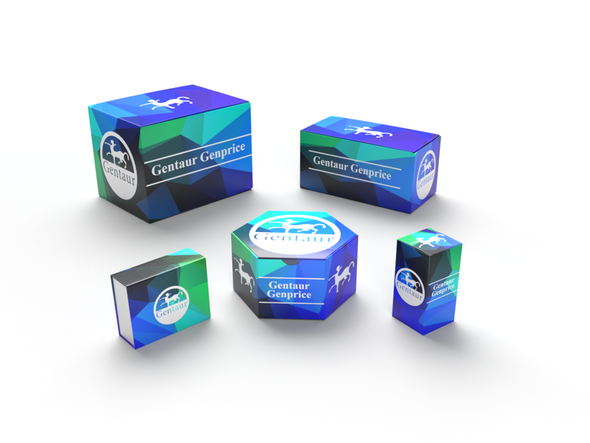Description
Hep Par 1 Antibody [OCH1E5] | 33-249 | Gentaur UK, US & Europe Distribution
Host: Mouse
Reactivity: Human, Dog
Homology: N/A
Immunogen: Extract of a formalin-fixed, rejected-allograft of a human liver was used as the immunogen for this Hep Par 1 antibody.
Research Area: Other
Tested Application: WB, IHC, IF
Application: IF: use antibody at 0.5-1.0 ug/ml
IHC (FFPE) : 0.5-1.0 ug/ml for 30 minutes at RT (1)
Prediluted format : incubate for 30 min at RT (2)
The concentration stated for each application is a general starting point. Variations in protocols, secondaries and substrates may require the Hep Par 1 antibody to be titered up or down for optimal performance.
1. Staining of formalin-fixed tissues requires boiling tissue sections in 1mM EDTA, pH 7.5-8.5, for 10-20 min followed by cooling at RT for 20 minutes.
2. The prediluted format is supplied in a dropper bottle and is optimized for use in IHC. After epitope retrieval step (if required) , drip mAb solution onto the tissue section and incubate at RT for 30 min.
Specificiy: N/A
Positive Control 1: N/A
Positive Control 2: N/A
Positive Control 3: N/A
Positive Control 4: N/A
Positive Control 5: N/A
Positive Control 6: N/A
Molecular Weight: N/A
Validation: N/A
Isoform: N/A
Purification: Protein G purified antibody
Clonality: Monoclonal
Clone: OCH1E5
Isotype: IgG1
Conjugate: Unconjugated
Physical State: Liquid
Buffer: PBS with 0.1 mg/ml BSA and 0.05% sodium azide
Concentration: 0.2 mg/mL
Storage Condition: Aliquot and Store at 2-8˚C. Avoid freez-thaw cycles.
Alternate Name: N/A
User Note: Optimal dilutions for each application to be determined by the researcher
BACKGROUND: Hepatocyte Specific Antigen, also called Hepatocyte Paraffin 1 or Hep Par 1, localizes to the mitochondria of hepatocytes. It is a sensitive marker for distinguishing hepatocellular carcinomas (HCC) from other metastatic carcinomas as well as cholangio-carcinomas. HCC���s occur primarily in the stomach, but they are also found in many other organs. The Hepatocyte Specific Antigen may also be a useful marker for intestinal metaplasia. Reportedly, strong expression of the Hepatocyte Specific Antigen correlates with smaller tumor size and longer patient survival. Occasionally, Hepatocyte Specific Antigen is also found in gastric carcinomas as well as in a few other non-hepatic tumors.

![Hep Par 1 Antibody [OCH1E5] Hep Par 1 Antibody [OCH1E5]](https://cdn11.bigcommerce.com/s-1rdwiq712m/images/stencil/608x608/products/483526/489355/gentaur-genprice__26005.1661610467__29809.1661628092__75433.1661676199__77988.1661684280__64362.1661692443__02085.1662049603__45075.1662119302__91744.1662191540__21580.1662291419__79855.1663498727.png?c=1)








